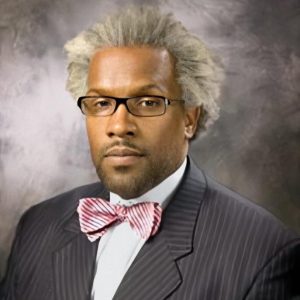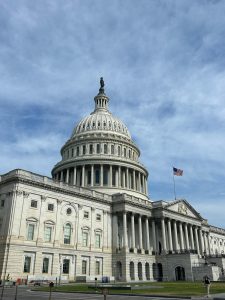Acknowledging black history and achievements all year round
February 28, 2023
February is recognized as Black History month, originally Negroe History Week, and was first established in 1926 by historian Carter G. Woodson. According to the National Museum of African American History and Culture, Negroe History Week was established to bring the stories of African Americans to light. In 1976, Black History Month was officially extended to be observed during the entire Month of February under President Gerald Ford. Woodson’s purpose for the creation of Negroe History Week still stands today, and taking the time to acknowledge Black history, achievements and contributions.
We at The Tower believe that America is deeply rooted in Black history, from the enslavement of African Americans in the birth of our nation, to the civil rights movement, and to now. Black history is American history, and should not be limited to the month of February, but instead should be recognized throughout the year.
Figures like Malcom X, Huey P. Newton, Fred Hampton and other revolutionaries are figures not as often recognized as others, but still incredibly important to civil rights movements as they provided organizations, resources and voices for struggling African Americans. The Black history most often taught in schools encompasses stories of nonviolence and peaceful protests led by a select few figures. But in all reality, Black history is so much more than Martin Luther King Jr. and Rosa Parks.
We at The Tower believe that in addition to a year-round inclusion of Black voices into our history and English classrooms, it is important to expand the kinds of groups and movements that we discuss routinely. This could include people like the Black Panther Party, who provided a fight against racism, and food for the hungry, but were later painted as a terrorist paramilitary group and forgotten to history.
High school curriculum does not include nearly the amount of Black history it needs to. Students should not be solely given the opportunity to learn about prominent Black figures in history in just the month of February, but rather, all throughout the year. According to College Board, an Advanced Placement course centered around African American studies is to be piloted within the 2023-2024 school year. The course will look into Black literature, arts and humanities, sciences, history and geography.
Even with Black history slowly being integrated in the history taught in schools, the importance of teaching Black history is still being frowned upon. Floridian Governor Ron DeSantis recently banned African American studies and curriculum based around Black history and critical race theory. Black history needs to be incorporated, acknowledged and celebrated throughout all curriculum, regardless of the month. According to the ACLU, it is especially important to discuss Black history as racism continues to persist in society. From mass incarcerations to the school to prison pipeline, these issues still exist today and are attributed as the new slavery by the ACLU.
We at The Tower believe that we should strive to learn about those who gave their lives to the development of civil rights, the advancement in technology and innovation, and the many authors, artists and people. It is also just as important to discuss the current issues that still impact Black Americans everyday, and to find solutions on creating equality. American public schools need to do better at incorporating Black history, work and leaders within current courses of studies. Black history is just as important as any other history, and needs to be acknowledged all year long.
















































































